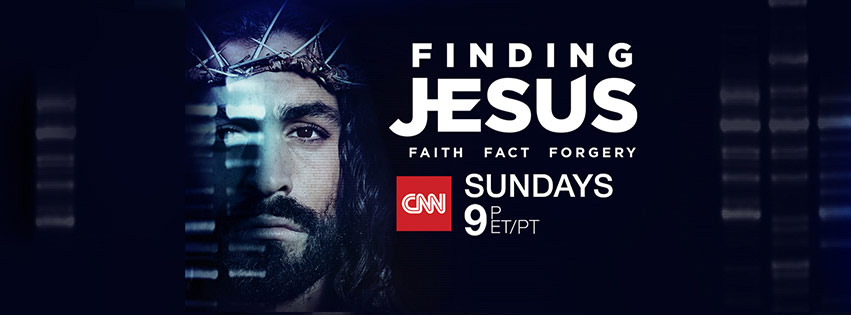|
|
|
Judas- traitor or friend of God; this is the question raised as we consider the codex discovered in the 1970’s found later to be “The Gospel of Judas” deemed heresy by the Bishop of Lyon in AD 180. The Gospel of Judas is the subject of this week’s installment of the CNN series Finding Jesus.
If you follow this blog you know I am fiercely passionate about the academy equipping the church. That is to say, I understand a good bit of my work to focus on building a bridge between scholarship and pastoral ministry rather than maintaining our long formed silos fashioned by history, schisms and creeds. I advocate for the formation of persons who are educated and informed about matters of faith, church history, theology and scripture. Part of the process, then, is confronting topics once discussed only in scholarly circles such as The Other Gospels. While the canon of the New Testament, formally named as only 27 books by Athanasius, Bishop of Alexandria in his Festal Letter of 367 AD, we now know there were many, many other writings. We call these works, the New Testament Apocrypha and among these letters are works that are also called Gospels. These other Gospels include, but are not limited to, Gospel of Mary, Gospel of Thomas, Gospel of Phillip and Gospel of Judas which we are delving into here. Judas is a codex of fragments that have been reconstructed and debated for years since the first translation published in 2006. In the Gospel of Judas, the author presents Judas’ first person account of life with Jesus. In the pieces of recovered text, Jesus is found imparting to Judas secret knowledge through visions and Judas is ultimately entrusted with the difficult task of turning Jesus over to the Sanhedrin so that the will of God can be accomplished. Here Judas does the hard thing for the good of the world. Further, the followers of Jesus, namely the disciples, are depicted here as utterly clueless and in a nightmare scene, their futures are revealed as blood soaked debauchery and doom. Since Judas is dated to the second century it is interesting that what is offered is a picture of people sworn to the cause of Jesus who are doing anything but living according to his teachings. Essentially, those who Jesus places in leadership think they are doing the right thing but they are not. Given the context of the second generation of the church, in Finding Jesus, Nicola Denzey Lewis suggests Judas is, “a political smear campaign against the people running the early church.” Scholars debate the translation of Jesus depiction of Judas in the text, while some have translated the greek diamon as “spirit” April DeConick and others read it as “demon” so that Jesus refers to Judas as the “thirteenth demon” so that the text does not vindicate Judas. Needless to say, this text and others offer us a window into history, a portrait of the early church, and invaluable information as to the tensions and issues inherent in the fledgling movement who had moved towards institutionalization. It is important to remember that Athanasius’ letter did not cause communities to abandon their deeply loved texts and these texts, outside of Athanasius named letters continued to inform church belief and practice.
2 Comments
“Mephibosheth, rise” I said the words like so many times before, moved as I am by this story of David the king and Jonathan’s son. Told the story to a room full of 45 18-25 year old college students who are taking the obligatory bible course for their undergraduate degree, and it caught me again. The gospel lived out in David’s bloodsoaked throne room, in the aftermath of his defeat of Saul’s sons and the near obliteration of Saul's line to protect the new king from another political uprising. Except this one, Jonathan’s son, lame in both feet who had lived his life in secrecy since the night his nurse dropped him while trying to smuggle him out of the palace as word got back that Saul and Jonathan had been killed. In the ancient world, Mephibosheth was a throw away—as were most with physical infirmities—he wasn’t able to work, to fight, to lead or to hold public office so he was utterly dependent upon the kindness of whomever would take him in. The night they brought him before David he must have thought he’d be killed too and wondered why the king had bothered to bring him in. He asked David, “What do you need with a dead dog like me,” here belying his own lowly status in the kingdom until the king rewrites his story and changes his life forever (2 Samuel 9). David restored all that Mephibosheth has lost, all that belonged to the house of Saul now transferred to his grandson and the king himself welcomed Mephibosheth to his own table, brought him into the royal family and gave him status as son of the king. Mephibosheth was, at once, given provision and protection in the house of David; his brokenness covered by the benevolence of the king. I taught that story in class on Wednesday and hung out in strip clubs on Thursday and couldn’t help connect the two experience. I was realize this full awake to the fact this is what the gospel compels us to do, open wide our arms to those who are thought ‘least’ among us, embrace those who are powerless, share with them the feast of abundance found only in the kingdom, enacted by those of us who have also been covered by the king. I was aware how over and over in Scripture the busted up, broken bum is the one for whom the royal robe and fatted calf wait. I couldn’t help but be aware that’s how I felt in the arms of my friends in the clubs. I was awash with emotion as I was welcomed, given a seat of honor and afforded the precious gifts of time and story, of friendship and trust. I was once more, undone by the power of love and reminded again how much we all need it. For more information on our ministry visit us strippedlove.org  I believed every- single- word. I lay in my bunk at camp in the hot, heavy, humid midsummer of Tennessee, fans whirring in the cabins ages old with dust, names of campers before me scratched into the walls for posterity. While other girls slept and dreamed about boys, I held my flashlight to the text and memorized the words of the Bible to win the contest, acquire the points, to be the best of the Christians that week. Did I like boys—sure, in fact it was at youth camp that I had my first kiss, first heartbreak, attended my first “couple’s event” where I sat looking longingly at the other girls paired off with pimply boys all shorter than us. All of it, at camp out in those woods down by the river. But what I really loved, what I really wanted, as far back as I can remember, was knowledge. Even as a hormone raging adolescent I was heady with the idea that I could know more than the other campers, that I could recall information like some sort of super power that I could apply a given scripture as an answer to anyone’s question at any given time. I believed my mastery of Scripture in the King’s English made me a star in the eyes of God, gave me status as good, worthy, and even, better than. But I was young, mind and body not yet fully formed, faith un-tested, and “if/then” systems I’d come to believe from the holy writ still strong in me like so much Geometry. It was before all of the losses before life had taken enormous chunks out of my armor, before the formulae I had constructed had fallen apart and failed to bear me up in the hospital emergency rooms, before the phone call in the night destroyed everything bright and beautiful, before cold February snow beside the grave, the grave, the grave. That was before the God I had constructed-- the one I could lead around with a rope, the one who would go where I led and do my bidding according to my Christmas list prayers-- failed me, left me cold and broken and hopelessly lost. It was before I learned this text was wild and free, mysterious and charged with the super natural, before I knew the people who wrote it were just like you and me. This was long before I knew there would be things I could not know and trees in the garden of which I could not eat and a path, a call into the darkness from which I wanted to run. It was before I knew the leading of the Spirit or the power of Jesus present in suffering—back when I thought this old book was meant for me to study and conquer and apply like so many handbook instructions. So I studied the words, read them in their original language, eyed yellowed, fragile fragment’s through looking glass and wept before scrolls preserved under the light. And I bowed, humbled and low in reverence for what is long old and true, for what is better and beyond me. “I believe I will see the goodness of God in the land of the living” my spirit cried, those verses thrumming in my heart, maybe they were only words once, only content before but they were deep in me and came back in the midnight hour while I heard the drip of the machines, the beep and hum of the oxygen and my lips quivered like Hannah’s in the tabernacle. I cried out not in faith but in desperation, and then I knew. The words did not need me, it was I who needed them—her-- Hokmah, Sophia, the wisdom of God the feminine pre existent wisdom of God who came to this world in the flesh of Jesus of Nazareth. Jesus who had sweat blood at his own hour of need, who had cried and languished and begged God to remove the cup that sat before him and bid him drink, Jesus who walked on for love. Now I repent, I confess, I proclaim, I testify. I will not try to tame it, I will not try to possess it, I will not worship the words, but the one who gave them to me through the fallen, blood soaked hands of the busted up humans whose stories are woven together across the centuries by the Spirit’s own power to remind me that I am not alone and I am in and through and at the end of it all called to love. |
Subscribe Today for Free GiftBLOG
Archives
June 2019
Categories
All
|



 RSS Feed
RSS Feed